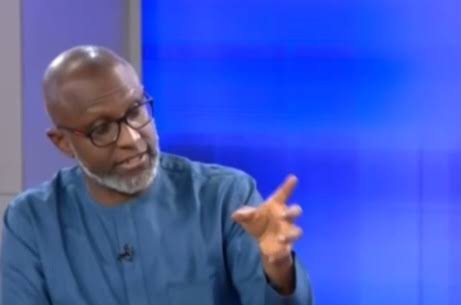Former presidential spokesperson, Laolu Akande, has called on President Bola Ahmed Tinubu to confront the deep-rooted corruption in Nigeria’s oil and gas sector, particularly within the Nigerian National Petroleum Corporation (NNPC).
Speaking on Channels TV’s Sunrise Daily on Thursday, Akande stressed that the country’s ongoing struggles with fuel subsidy removal and the inefficiencies within the oil sector stem from years of unaddressed corruption and poor leadership.
Akande said, “There are two critical institutions that determine whether the Nigerian economy rises or falls: the Central Bank of Nigeria (CBN) and the NNPC. Unfortunately, corruption is deeply embedded in the NNPC and the oil and gas sector,” he said.
He explained that the system’s inefficiencies have allowed powerful interests to maintain control, leaving ordinary Nigerians to bear the brunt of the fallout. “We haven’t had a president courageous enough to go after those perpetuating the corruption. It’s a simple problem, but it requires bold leadership to solve it.”
Akande pointed to the lack of transparency in Nigeria’s oil production as one of the most glaring examples of corruption. “Look at the level of oil theft in this country. It’s mind-boggling. We depend on the international oil companies (IOCs) to tell us how much oil is being lifted, rather than having our own systems in place to verify. How come we don’t have measurement systems at oil flow stations to monitor production accurately?” he asked, highlighting the need for better oversight and accountability.
Akande highlighted the pressing hardships faced by Nigerians due to recent government policies, including the removal of fuel subsidies. “It’s a very bad situation for Nigerians, and I dare say it’s touchy for the government too,” he remarked. “The fact of the matter is that the times are very hard. While many agree that these policies had to be implemented, they are causing a lot of suffering. Both the people and the government are on edge, and the real lesson here is that years of neglecting the fundamental issues have led us here.”
He lamented the history of ineffective leadership in tackling corruption in the oil and gas sector, noting that despite three Nigerian presidents—Obasanjo, Buhari, and now Tinubu—serving as Petroleum Ministers, the industry remains plagued by inefficiencies. “Even though we’ve had presidents as ministers of petroleum resources, it hasn’t led to any significant improvement. If the presidents themselves can’t fix this issue, who will?” Akande questioned.
He emphised the need for urgent reforms in both the NNPC and the broader oil sector. “It’s time for decisive action. If the Nigerian economy is to recover and thrive, we need to fix the corruption in the NNPC and fully implement the PIA. The government must put in place proper mechanisms to ensure transparency in oil production, eliminate inefficiencies, and protect the Nigerian people from the fallout of poor policy implementation.”
In a direct appeal to President Tinubu, Akande called for bold, courageous leadership to tackle the corruption that has long held Nigeria’s oil sector back. “The Nigerian people are suffering, and it’s time for our leaders to act decisively. The system has been broken for too long, and we can’t afford to continue like this.”
Akande also expressed frustration with the failure of successive governments to fully implement the Petroleum Industry Act (PIA), a key piece of legislation aimed at reforming the oil and gas sector. While the PIA was finally signed into law during Buhari’s administration, Akande noted that its provisions have not been followed through comprehensively. “We waited decades for the PIA, but even now, are we following it in its entirety? The answer is no. There’s still a lack of courage and leadership to fully address the systemic problems,” he remarked.
The former presidential spokesperson was equally critical of how fuel subsidy removal has been handled, pointing out that while Tinubu deserves credit for initiating the process, it was done without adequate planning. “We must give Tinubu credit for having the courage to say, ‘Let’s end this thing,’ but he didn’t do it properly. There was no plan in place to mitigate the impact on Nigerians, and within two months, the subsidy was back. Even the president couldn’t tolerate how high the prices had gone.”
“But when you look at the issue of the subsidy, I think that we have to find a way to do some kind of subsidy.”

 Join Daily Trust WhatsApp Community For Quick Access To News and Happenings Around You.
Join Daily Trust WhatsApp Community For Quick Access To News and Happenings Around You.

